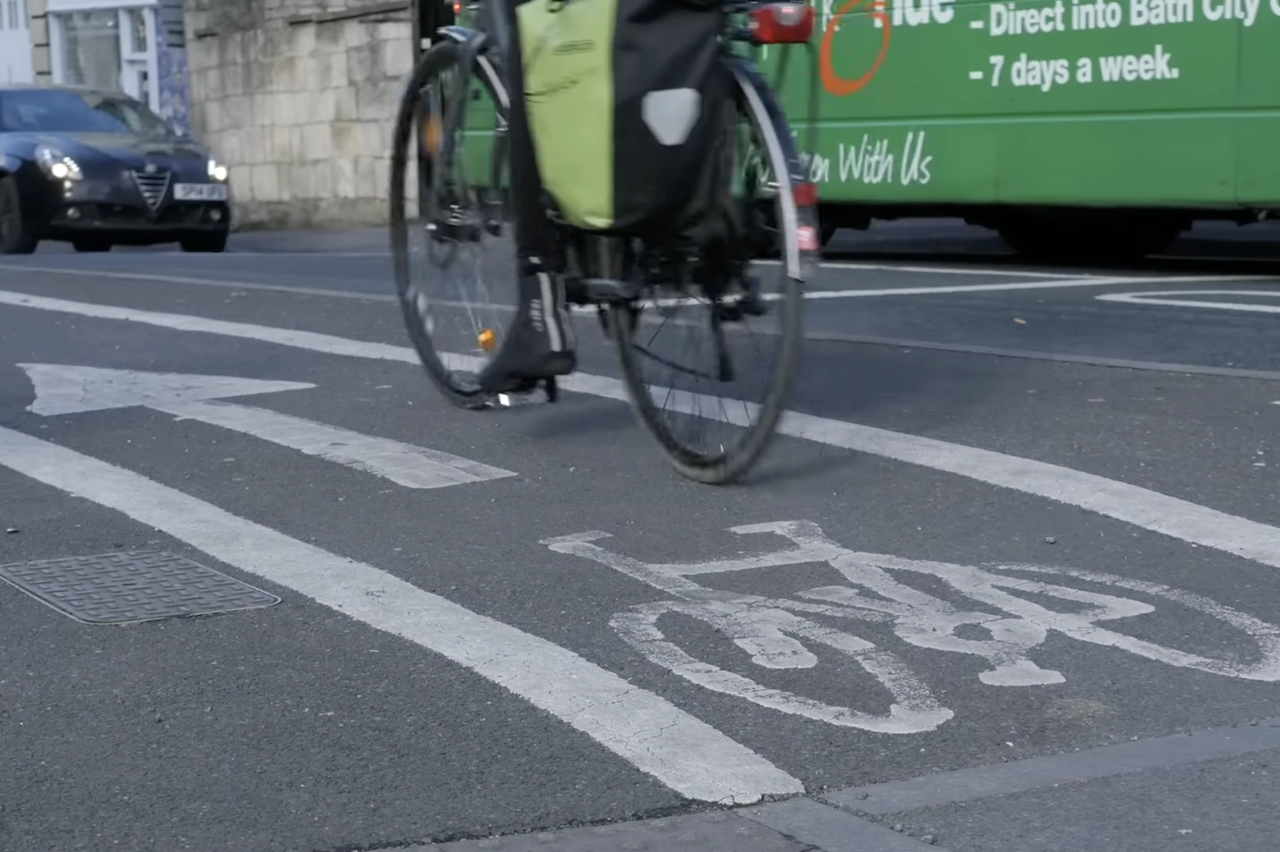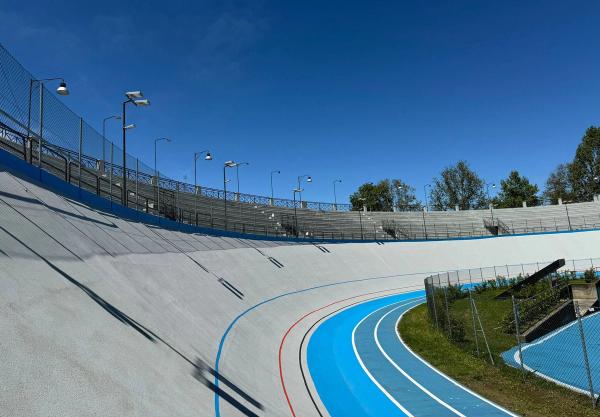Cycling at COP28: Still a novelty act but 'the needle is moving'
European Cyclists' Federation CEO Jill Warren reflects on how cycling was discussed and received at the controversial global climate summit
Patrick Fletcher
Deputy Editor
© GCN
Cycling and active transport are key environmentally-friendly alternatives to cars
The COP28 climate summit drew to a close on Wednesday, with a divisive new deal on fossil fuels to cap a controversial fortnight. Amid the bluster, cycling “punched above its weight”, according to one insider, with advocates highlighting some positive steps amid a trying environment.
The annual COP summits bring 197 countries together in a bid to form a global approach to fighting climate change, but there has always been a degree of scepticism over the true appetite for reform, and the 2023 edition descended into farce almost as soon as it had begun.
On day four of the conference, it emerged that the president, who is also the chief executive of the UAE’s state oil company, had recently argued there was “no science” to suggest a phase-out of fossil fuels would help restrict global heating to 1.5C.
“When you hear things like that, you think to yourself ‘what on earth…?’ If they can't even acknowledge the science behind climate change, what hope is there for humanity? You do have moments like that,” Jill Warren, CEO of the European Cyclists’ Federation, told GCN on the final day of COP28.
“But you can’t let yourself get bogged down by it because otherwise you can't be a good advocate. You have to remain positive and you have to say, you know what, my job is to call this out. My job is to call out how absurd it is that something so obvious is being made so difficult.”
Read more: Can business save the planet? One man is cycling around the world for three years to find out
The ECF was the leading voice in cycling advocacy at the global summit in the UAE over the past two weeks. In fact, it was the only real voice, as the sole cycling body to have a presence in the so-called Blue Zone, which is the exclusive formal conference space managed by the UN.
On top of that hurdle, there was the added complication of cycling being treated as something of a novelty act. The ECF was the cycling organisation in a room of 80,000 people who, even if in favour of decarbonisation, barely seemed to have considered active transport as a means of achieving it.
“You do get comments like ‘oh, cycling, you have an advocacy group for that? Oh, how interesting’. And you think ‘you have got to be kidding me’,” Warren said.
“To us, it’s our whole world so it seems obvious, but it seems to be an eye-opener for a lot of people there. We’re just not as big or well-funded as so many other kinds of groups that you find at COP.
“That said, being a novelty, you find people are very interested in talking to you. You get invited to speak on lots of panels. It meant that, despite being very very small in sheer numbers, we could be very visible.”
The progress
Warren appeared on numerous panels, particularly on the summit’s Transport Day on December 6, but, from the ECF’s perspective, the highlight was the official side-event it co-hosted, entitled ‘Walking and Cycling Policies, Investments and Inclusion in NDCs for Climate, Health and Equity’.
Throughout the various discussions, the ECF also looked to provide a platform for its recent collaborations, such as the Partnership for Active Travel and Health’s campaign to support governments to provide for active transport, and also the Marrakech Partnership for Global Climate Action’s Transport Thematic Group.
It was a positive step, then, to see that in a COP28 report, the United Nations Framework Convention on Climate Change (UNFCC) recognised the role of cycling and active travel must play in a sustainable future: “Ensuring convenient access to sustainable transportation modes, such as walking, cycling, and public transportation, is a pivotal goal in advancing global sustainability.”
Read more: How to replace your car with an e-bike
The UNFCC also highlighted calls for a re-think of the ‘Avoid-Shift-Improve’ approach.
“In transport, a lot of the focus is on improve – for example, change combustion engines to electric vehicles – but we’re getting them to pay more attention to ‘avoid and shift’,” Warren explained.
“So avoid motorised trips in the first place, and shift to sustainable modes of transport. We’re getting more traction with that now.”
Additionally, Warren noted that ‘health’ was generally a far bigger theme than at previous COP summits, which helped move cycling up the agenda.
“Even groups like the World Bank, who would have probably looked at us like we were aliens a few years ago, they were on stage talking about how important it is to finance active travel projects. You wouldn’t hear them saying that a few years go,” she said.
“The EU were talking proudly about their recent declaration on cycling, which I also found very positive, because it shows that they’ve understood the potential that cycling has.”
Looking ahead to COP29
All in all, Warren says progress is being made, and the “needle is moving”, but she also acknowledges the scale of the task.
“Of course, it’s never enough. We want more - more attention, more specific targets, more recognition, and more actions to unleash cycling’s potential.”
Time is ticking, and the criticism that has greeted Wednesday’s climate deal – the marquee outcome of the summit as a whole – has already raised fresh question marks over the potential for change.
So what would Warren like to see by the time COP reassembles for its 29th edition in Azerbaijan next November?
“My hope is that the agenda will have more explicit mentions of cycling – and walking if we're talking about wider active travel – and that there's more of an emphasis on ‘avoid and shift’, instead of electrification being so dominant in the transport agenda,” she said.
“There is a long way to go, but I think COP28 gives us something to build on as we look towards all the work that will go into COP29 next year.”










